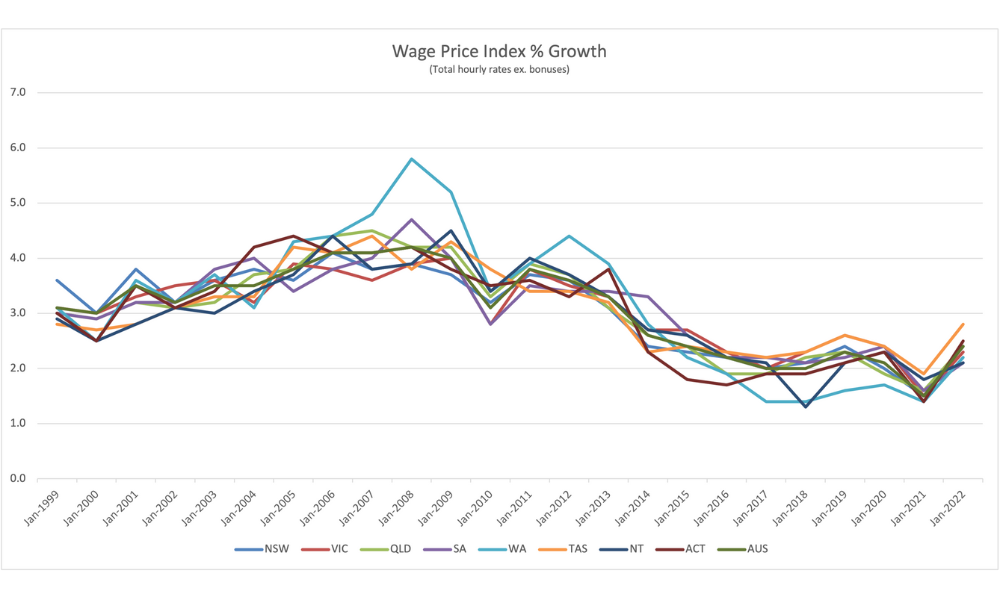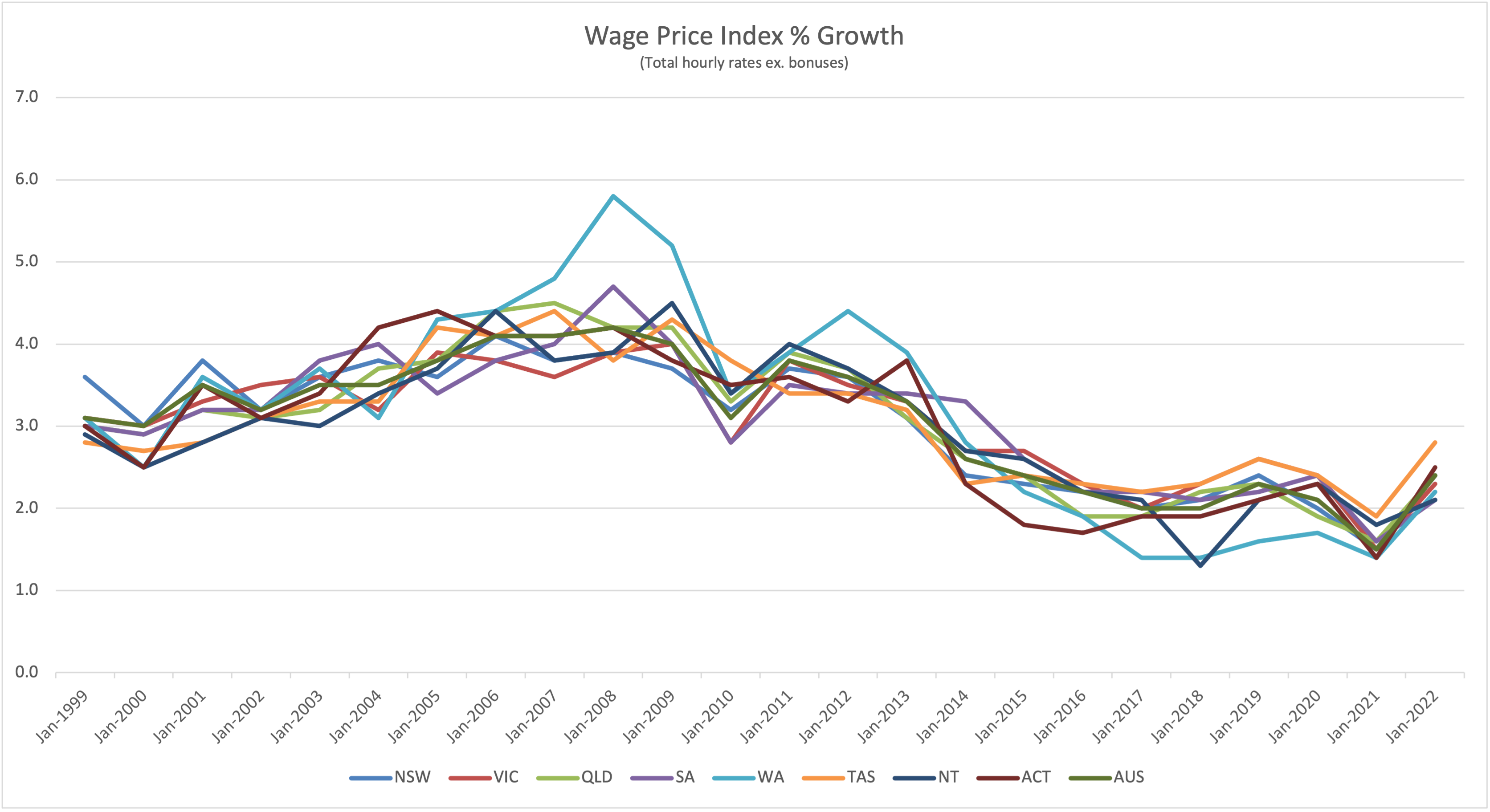
Earn the wage rises - it's time to increase productivity, says economist

Union leaders have stated they will ignore Philip Lowe’s requests for wage restraint and will “unrelentingly” pursue wage growth, claiming that wages have played no part in contributing to current inflation levels.
“Wages did not create the inflation levels we have today” AWU national secretary Daniel Walton told The Australian.
“The AWU will fight unrelentingly for pay increases that keep pace with the cost of living so our members can put food on the table, fuel in their cars, and roofs over their families’ heads,” added Daniel Walton.
Conversely, the RBA has expressed deep concerns over the damaging implications of premature pushes for wage growth amidst the “scourge” of inflation.
RBA Governor Dr Philip Lowe fears that “if workers and businesses come to expect higher inflation and wages growth and price-setting behaviour adjusts accordingly, the task of navigating that narrow path will be very difficult, if not impossible”.
Read more: Australian companies increase wages to keep staff
“A shift in higher inflation expectations will require higher interest rates. In time that would mean a sharper slowing of the economy. It is in our national interest that we avoid this,” expanded Lowe.
Lowe drew on a wage growth comparison with the United States, elucidating that “wages are rising” in Australia but not as rapidly as in the US.
“Where there are some areas where wages are rising very quickly in Australia, aggregate growth in wages has not responded materially to the higher inflation and is not inconsistent with inflation returning to target over time,” said Lowe.
“It is important that this remains the case and that we avoid the cycle of higher inflation leading to higher wages growth and then higher inflation – a cycle like that would end in higher interest rates and a sharper slowing in the economy,” asserted Lowe.
Read more: Advertised wages surge upwards
Although the wage price index is increasing in all states, the most recent ABS statistics show that it is lower than it has been since the start of this century.
 Source – abs.gov.au
Source – abs.gov.au
Although Australia’s current rate of inflation isn’t high when compared to other G20 nations, is IS high compared to historical levels – over the last decade it has hovered around the 2% level.
Economist Matt Grudnoff of the Australia Institute told SBS that the “Reserve Bank doesn’t need to react particularly strongly”, declaring that the current scourge of inflation will “wash its way out by itself” and that Australia’s inflation is already comparatively lower than the vast majority of G20 nations.
“Most of the G20 countries are actually higher than us. So we don’t have as stronger inflation as the rest of the world,” Grudnoff told SBS.
Gurdnoff explained that “supply shock inflation usually has a one-off effect on inflation. So, if the oil price goes way up, and petrol prices go up, and then they stop going up, because there’s nothing driving them further, you have a spike in inflation.”
“But then it goes away, because there’s nothing to push that inflation even higher.”
“So there might be a very good argument at the moment that the Reserve Bank doesn’t need to react particularly strongly to this kind of inflation,” added Grudnoff.
“This inflation will actually wash its way out by itself.
|
Inflation in the G20 |
|
|
Turkey |
78.6% |
|
Argentina |
64% |
|
Russia |
15.9% |
|
Brazil |
11.9% |
|
Spain |
10.2% |
|
U.K. |
9.4% |
|
U.S. |
9.1% |
|
Netherlands |
8.6% |
|
Euro Area |
8.6% |
|
Canada |
8.1% |
|
Italy |
8.0% |
|
Mexico |
8.0% |
|
Germany |
7.6% |
|
South Africa |
7.4% |
|
New Zealand (not G20) |
7.3% |
|
India |
7.0% |
|
Singapore |
6.7% |
|
Australia |
6.1% |
Speaking to The Weekend Australian, global economist Dan Andrews of the E61 Institute (expressing his personal opinion), said that rather than just look at wage growth, the nation should be looking at increasing performance to justify that growth.
“If we get a pick-up in wages that results from a pick-up in productivity, then that is not inflationary,” Mr Andrews said to reporters.
“You’ve got to ask where the wage growth is coming from, and why it’s increasing.”
Source: tradingeconomics.com